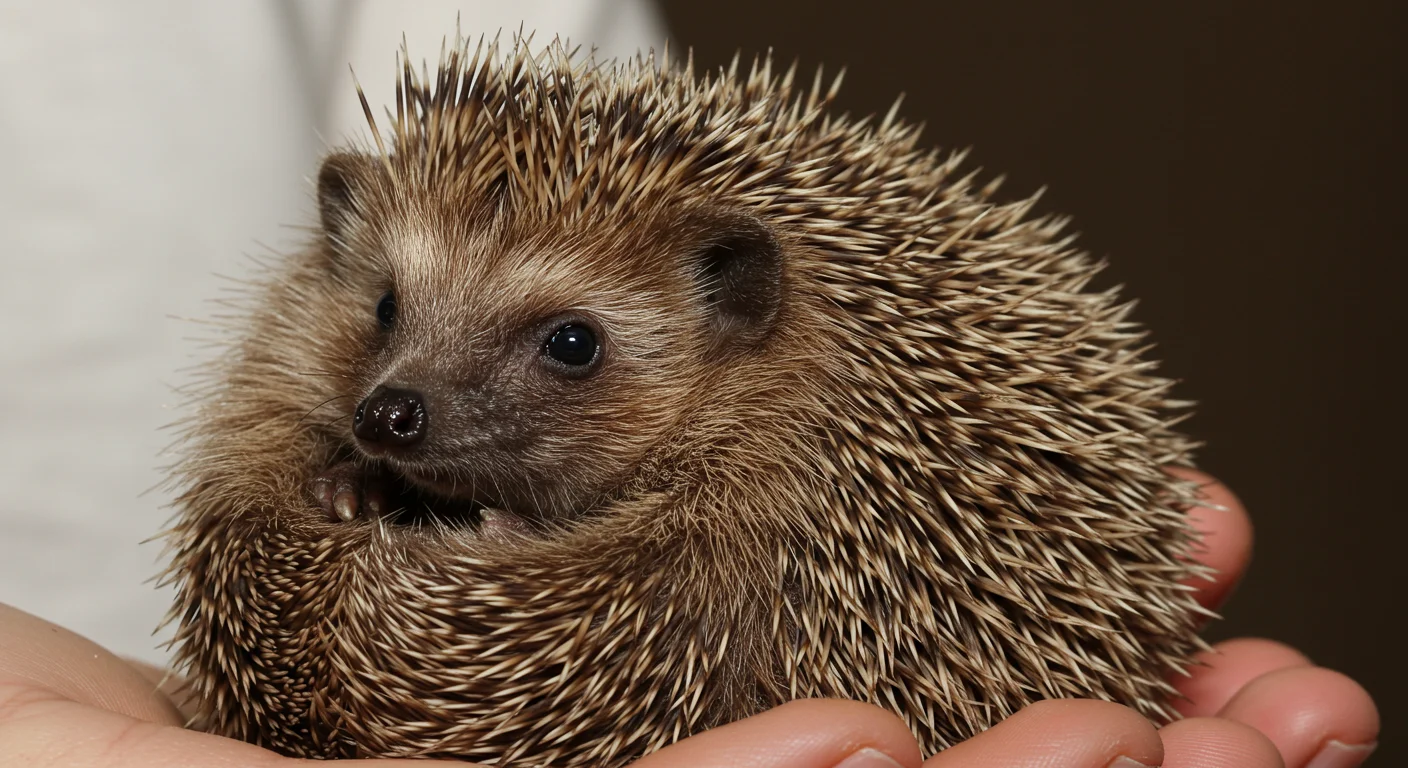Hedgehog Obesity: Causes, Prevention, and Treatment
While undeniably cute, chubby hedgehogs are often overweight, and obesity is a serious health concern for African Pygmy Hedgehogs. Excess weight can lead to various health problems and significantly shorten their lifespan. Understanding the causes, prevention, and safe treatment of hedgehog obesity is vital for responsible ownership.
Recognizing Hedgehog Obesity
It can be tricky to gauge a hedgehog’s weight visually due to their quills and ability to ball up. Signs of obesity include:
- Inability to fully curl into a tight ball.
- Visible fat deposits, especially around the armpits (“wing fat”) and legs.
- Difficulty walking or moving normally; waddling gait.
- Labored breathing after minimal exertion.
- Inability to reach easily for self-anointing.
A veterinarian can help determine a healthy weight for African pygmy hedgehog, which typically ranges from 300 to 600 grams, although size and build vary. Regular weighing (e.g., weekly or bi-weekly) on a kitchen scale is the best way to monitor weight trends.

Common Causes of Obesity
Obesity in hedgehogs usually results from a combination of factors:
- Overfeeding: Providing too much staple food (kibble). Many owners leave food available 24/7.
- High-Fat/High-Calorie Treats: Frequent feeding of mealworms, waxworms, nuts, or other fatty treats.
- Poor Quality Diet: Diets too high in fat or fillers and low in appropriate protein and fiber.
- Lack of Exercise: Insufficient cage space, lack of a running wheel, or not enough out-of-cage playtime.
- Underlying Health Issues: Though less common, conditions like hypothyroidism could contribute (requires veterinary diagnosis).
Health Risks of Obesity
Obesity significantly strains a hedgehog’s small body, increasing the risk of:
- Hepatic Lipidosis (Fatty Liver Disease): A potentially fatal condition where excess fat accumulates in the liver. Hepatic lipidosis is a common consequence of obesity in many animal species.
- Heart Disease: Increased strain on the cardiovascular system.
- Arthritis and Joint Problems: Excess weight stresses joints, making movement painful.
- Reduced Mobility: Difficulty moving leads to less exercise, exacerbating the problem.
- Breathing Difficulties: Fat deposits can restrict lung expansion.
- Reduced Lifespan: Obese hedgehogs generally live shorter lives.
Fatty Liver Disease is Serious: This condition can develop rapidly if an obese hedgehog stops eating (e.g., due to stress or illness) and requires immediate veterinary intervention.
Prevention Strategies
Preventing obesity is far easier than treating it:
- Portion Control: Feed a measured amount of high-quality hedgehog kibble (typically 1-2 tablespoons per night, adjust based on individual needs and activity level).
- Quality Diet: Choose a food with appropriate protein (around 30%) and fat (10-15%) content. Avoid foods with excessive fillers or fat.
- Limit Treats: Offer insects and other treats sparingly (e.g., a few times a week). Focus on lower-fat options like crickets or dubia roaches over mealworms. Avoid human foods, nuts, and seeds.
- Encourage Exercise: Provide a large, solid-surface wheel. Allow supervised out-of-cage playtime in a safe area.
- Regular Weigh-ins: Monitor weight regularly to catch trends early.
Treatment: Safe Weight Loss
If your hedgehog is overweight, consult an exotics veterinarian before starting any weight loss plan. Crash dieting is dangerous and can trigger fatty liver disease.
- Veterinary Consultation: Rule out underlying medical conditions and get guidance on appropriate target weight and diet.
- Gradual Diet Adjustment: Slowly reduce food portions or switch to a lower-calorie, high-fiber formula recommended by your vet.
- Controlled Treat Intake: Eliminate high-fat treats and offer only small amounts of low-calorie treats for hedgehogs like lean cooked chicken or specific vegetables (vet approved).
- Increase Exercise Gradually: Encourage more wheel time and playtime. Ensure the wheel is appropriate and functions well.
- Monitor Closely: Weigh the hedgehog weekly and track progress. Aim for slow, steady weight loss (a few grams per week).

Maintaining a healthy weight is fundamental to ensuring your hedgehog lives a long, active, and comfortable life.
References
- Wikipedia contributors. (2023). Hepatic lipidosis. *Wikipedia, The Free Encyclopedia*. Retrieved from https://en.wikipedia.org/wiki/Hepatic_lipidosis
- Johnson-Delaney, C. (2016). African Pygmy Hedgehog (Atelerix albiventris): Nutrition and Nutritional Disease. *Veterinary Clinics of North America: Exotic Animal Practice*, *19*(1), 139-151.
















